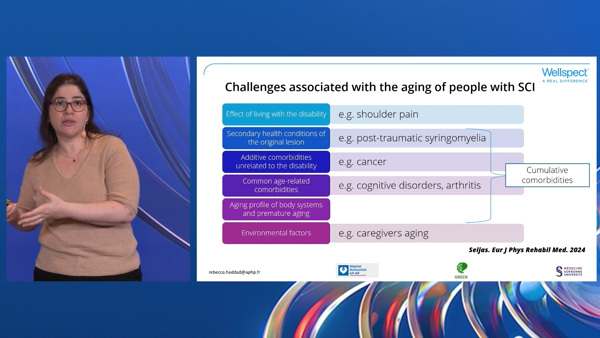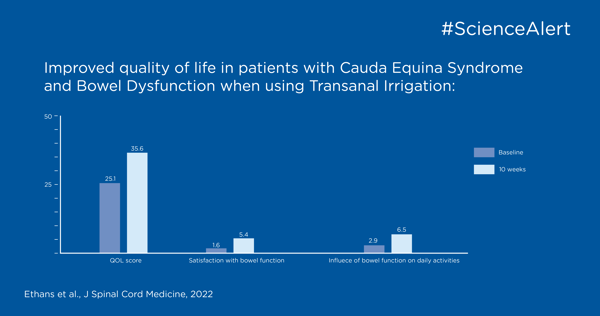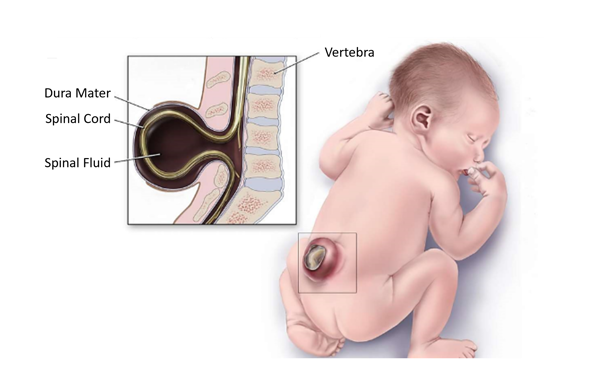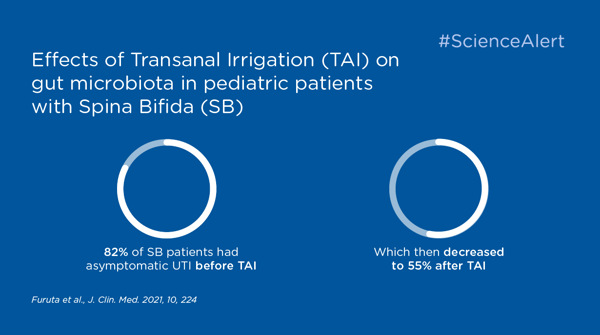Artikkelit
Wellspect Koulutus on laaja valikoima eritasoisia koulutusaineistoja perusopetusmateriaalista alkaen sinulle, joka tapaat virtsarakon ja suoliston toimintahäiriöistä kärsiviä potilaita.
Wellspect Koulutus on laaja valikoima eritasoisia koulutusaineistoja perusopetusmateriaalista alkaen sinulle, joka tapaat virtsarakon ja suoliston toimintahäiriöistä kärsiviä potilaita.
key:global.content-type: Artikkeli
Tässä webinaarissa puhuu tohtori Rebecca Haddad, joka on fysioterapiaan ja kuntoutukseen erikoistunut lääkäri, joka on keskittynyt geriatriaan Sorbonnen yliopistossa Pariisissa, Ranskassa. Hänen kliininen, tutkimus- ja opetustyönsä on omistettu ikääntyvien vammautuneiden hoidolle, ja hän keskittyy erityisesti virtsarakon vanhenemiseen.

key:global.content-type: Artikkeli
Tässä webinaarissa puhuu tohtori Gianluca Sampogna, urologinen kirurgi, joka työskentelee Milanon Niguardan sairaalan selkäydinvammayksikössä, joka on selkäydinvammaisten virtsarakon, suolen ja seksuaaliterveyden ongelmiin erikoistunut keskus. Hän johtaa seksuaaliterveysohjelmaa, joka tarjoaa monia ratkaisuja seksuaalineuvonnasta kuntoutukseen, lääkehoidosta leikkaukseen. Luento on englanniksi.

key:global.content-type: Artikkeli
Tässä webinaarissa puhuu tohtori Gianna Rodriguez, kliininen professori Michiganista Yhdysvalloista. Hän on selkäydinvammaohjelman johtaja Michigan Medicine -yliopiston fysiatrian ja kuntoutuksen osastolla Yhdysvalloissa. Luento on englanniksi.

key:global.content-type: Artikkeli
This article explores how the aging process affects bladder and bowel function in SCI patients and discusses the need for specialized management strategies.

key:global.content-type: Artikkeli
A cost-effectiveness analysis of Navina Smart on adult patients affected by neurogenic bowel dysfunction.

key:global.content-type: Artikkeli
Transanal Irrigation (TAI) is known to be a successful therapy to treat LARS, and in this study, Orlandi et al explore the use of TAI as a treatment option for women with endometriosis who experience LARS-like symptoms.

key:global.content-type: Artikkeli
In this webinar you will hear from Dr. Rebecca Haddad who is a physician specializing in Physical Medicine and Rehabilitation with a focus on geriatrics at Sorbonne Université in Paris, France. Her clinical, research, and teaching work is dedicated to the care of people aging with disabilities, with a particular focus on bladder aging.

key:global.content-type: Artikkeli
Take part of clinical evidence that speaks to the improved outcomes of using TAI in pediatric patients when coupled with an individualized approach upon initiation of TAI.

key:global.content-type: Video
Debbie Green, SIA:n selkäydinvamma-asiantuntija, käsittelee joitakin selkäydinvammautuneiden henkilöiden virtsarakon ja suolen hallintaan liittyviä ongelmia.

key:global.content-type: Julkaisun kohokohta
In this publication highlight you can read about how to manage bowel dysfunction in individuals with cauda equina syndrome.

key:global.content-type: Artikkeli
Take part of clinical data on transanal irrigation as a mean to manage neurogenic bowel in the pediatric population with Spina Bifida

key:global.content-type: Artikkeli
Transanal irrigation's influence on gut microbiota could have a positive effect on the immune system and contribute to reduced UTIs, as per this clinical study by Futura et. al.
